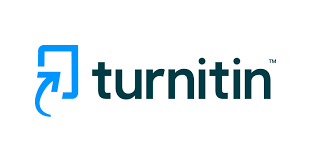Use of new technologies in health education during the pandemic
DOI:
https://doi.org/10.51723/hrj.v6i29.628Keywords:
Distance Education, Continuing Education and Health EducationAbstract
Introduction: Residents were included in the scenario of the Management of Surveillance of Immune-Preventable Diseases and Water and Food Transmission (GEVITHA) to carry out the monitoring of suspected and confirmed hospitalized cases for COVID-19 in addition to suspected and confirmed deaths. This management is responsible for analyzing, monitoring and evaluating the epidemiological behavior of diseases under surveillance, as well as the impact of the control measures adopted; monitoring the service of the vaccine rooms, training of professionals responsible for vaccination. In addition, this was defined as the technical area responsible for surveillance and monitoring of cases and deaths by COVID-19 in the Federal District. Thus, during the experience of residents in this scenario for the monitoring of COVID-19, there was a need for adaptations in training for vaccine rooms that were routine in the sector before the pandemic. Objective: Thus, the objective of the work was to research and apply new methods of continuing education that could be used during the period of social isolation. Method: Therefore, the Arch of Maguerez tool was used, using the steps of Observation of reality, Key Points, Theorization, Hypotheses of Solution and Application to Reality. Results: 14 animated videos were produced, being them about human rabies prophylaxis protocol, measles, accidental tetanus prophylaxis, surveillance of acute flaccid paralysis, 2020 vaccination schedule, training for the use of the SI-PNI system, training for the insertion of notification of COVID-19 cases on E-SUS and SIVEP - GRIPE. The videos were saved in mp4 format for quick dissemination to health regions and vaccine rooms through the WhatsApp application and were also posted on the DF Health Department website. In addition, they were also included on the YouTube channel of the EpiFepecs project, a project of the Multiprofessional Residency Program for Management in Public Health Policies. Conclusion: In this way, through the Arco de Maguerez tool used in this intervention project, it was possible to change reality and adapt the sector's routine to the new needs.
Additional Files
Published
How to Cite
Issue
Section
License
Copyright (c) 2025 Dalila Machado Botelho Oliveira, Miqueias Wallisom Rodrigues Melo, Renata Torres Sena Pita

This work is licensed under a Creative Commons Attribution 4.0 International License.
Esta licença permite que outros distribuam, remixem, adaptem e desenvolvam seu trabalho, mesmo comercialmente, desde que atribuam crédito à revista pela criação original.












